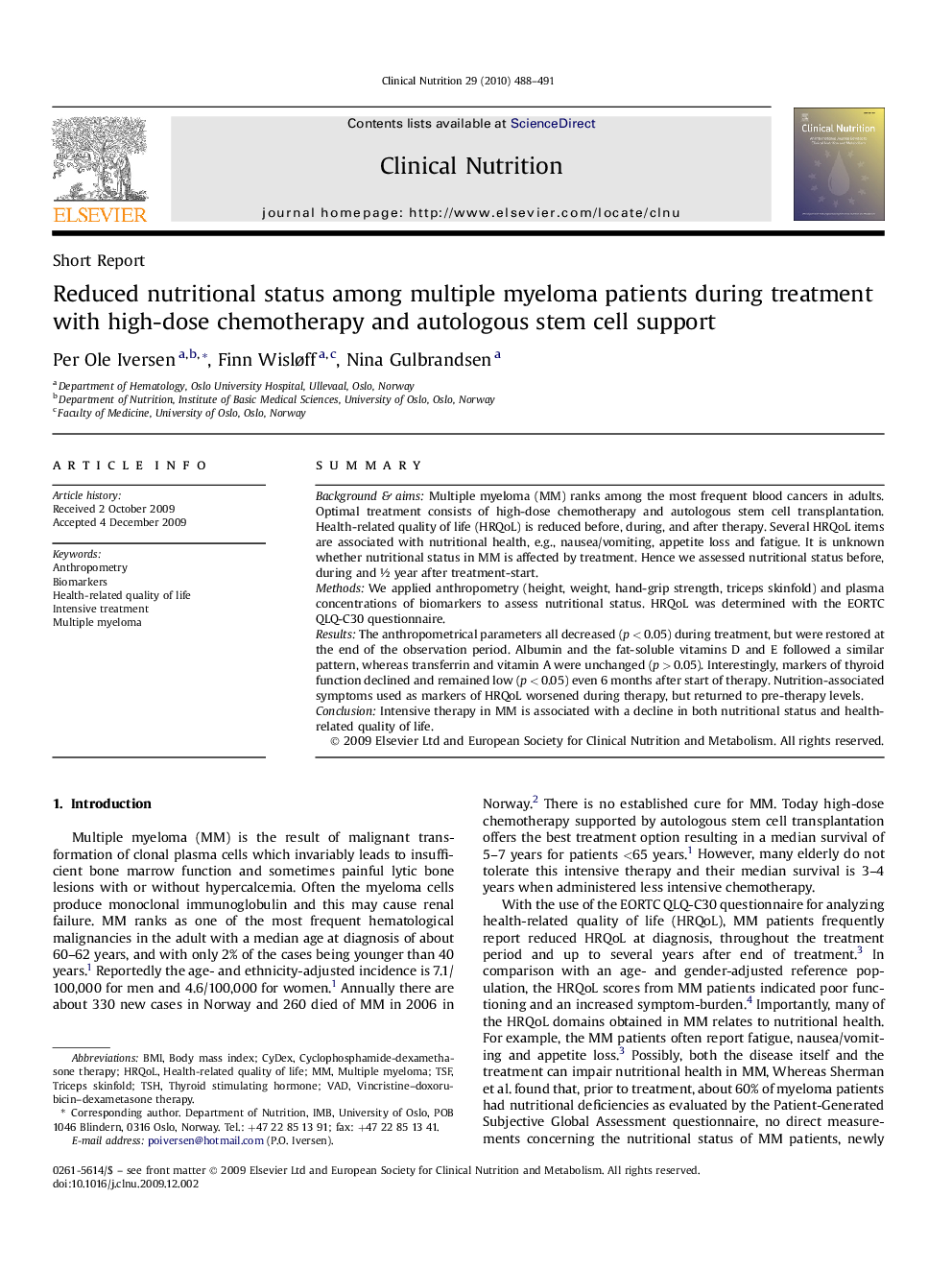| Article ID | Journal | Published Year | Pages | File Type |
|---|---|---|---|---|
| 2683209 | Clinical Nutrition | 2010 | 4 Pages |
SummaryBackground & aimsMultiple myeloma (MM) ranks among the most frequent blood cancers in adults. Optimal treatment consists of high-dose chemotherapy and autologous stem cell transplantation. Health-related quality of life (HRQoL) is reduced before, during, and after therapy. Several HRQoL items are associated with nutritional health, e.g., nausea/vomiting, appetite loss and fatigue. It is unknown whether nutritional status in MM is affected by treatment. Hence we assessed nutritional status before, during and ½ year after treatment-start.MethodsWe applied anthropometry (height, weight, hand-grip strength, triceps skinfold) and plasma concentrations of biomarkers to assess nutritional status. HRQoL was determined with the EORTC QLQ-C30 questionnaire.ResultsThe anthropometrical parameters all decreased (p < 0.05) during treatment, but were restored at the end of the observation period. Albumin and the fat-soluble vitamins D and E followed a similar pattern, whereas transferrin and vitamin A were unchanged (p > 0.05). Interestingly, markers of thyroid function declined and remained low (p < 0.05) even 6 months after start of therapy. Nutrition-associated symptoms used as markers of HRQoL worsened during therapy, but returned to pre-therapy levels.ConclusionIntensive therapy in MM is associated with a decline in both nutritional status and health-related quality of life.
